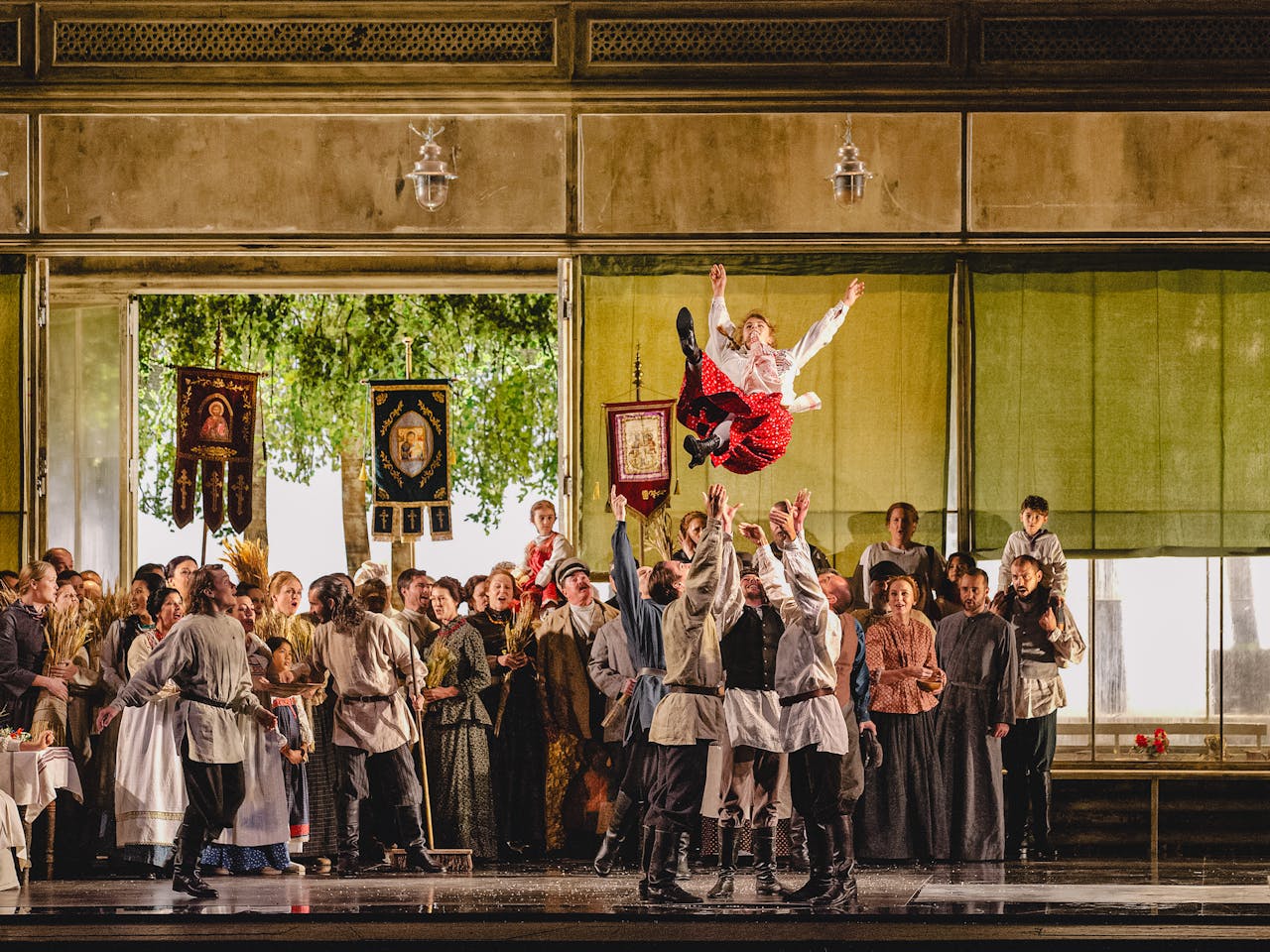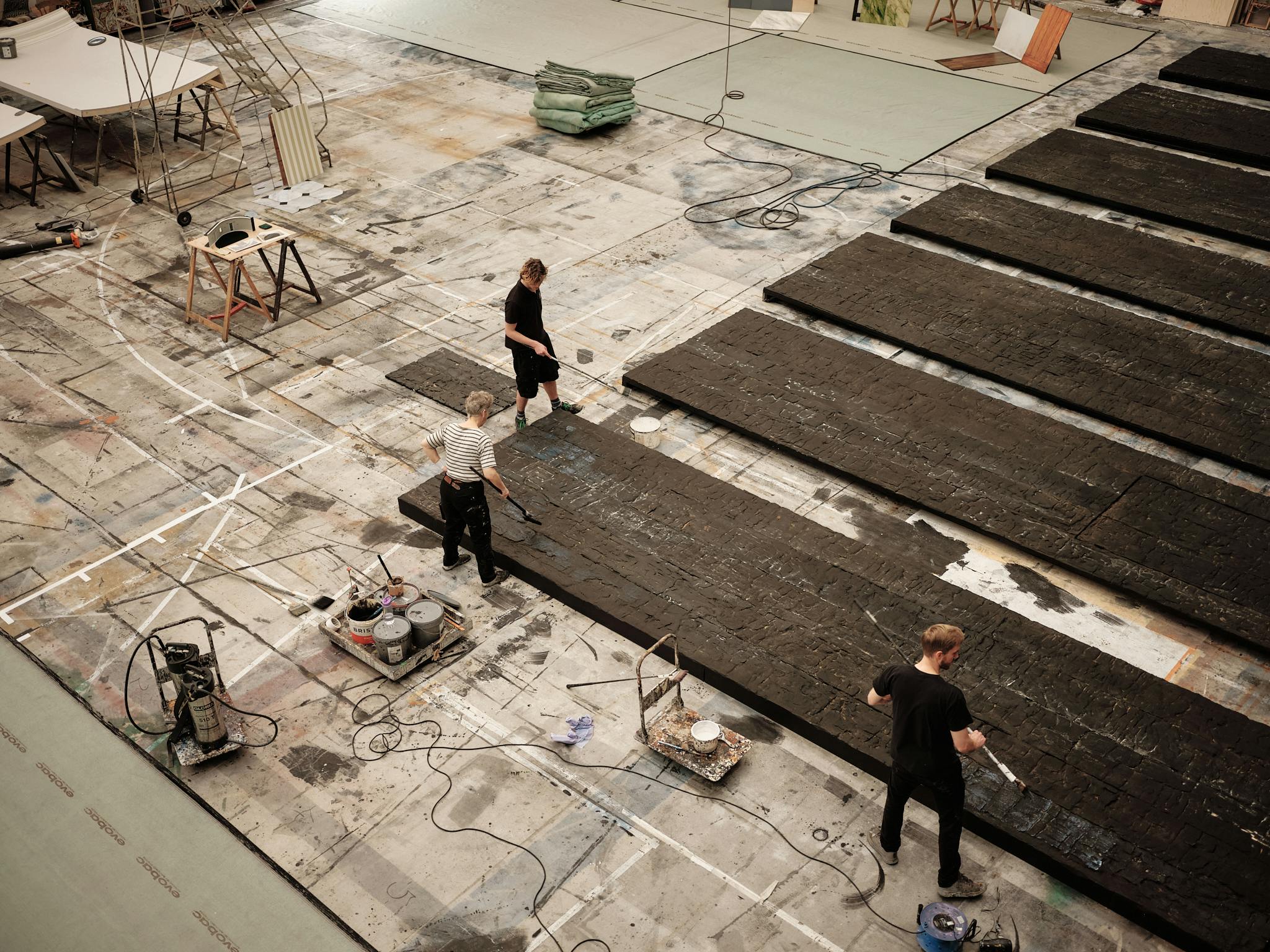In Cinemas: Eugene Onegin
In Cinemas: Eugene Onegin
In Cinemas: Eugene Onegin
Asmik Grigorian and Igor Golovatenko star in The Metropolitan Opera's evocative production of Tchaikovsky's romantic opera. Conducted by Timur Zangiev. Watch in cinemas from Tuesday 5 May 2026.

The Met’s evocative production, directed by Tony Award–winner Deborah Warner, 'offers a beautifully detailed reading of… Tchaikovsky’s lyrical romance' (The Telegraph). Watch in cinemas from Tuesday 5 May 2026.
The Met’s evocative production, directed by Tony Award–winner Deborah Warner, 'offers a beautifully detailed reading of… Tchaikovsky’s lyrical romance' (The Telegraph). Watch in cinemas from Tuesday 5 May 2026.
Story
Tatyana spends her days lost in the world of romantic books, while to her carefree sister Olga, love is just a game. When Olga’s admirer, the poet Lensky, arrives at their country estate with the brooding Eugene Onegin, sparks fly. Tatyana immediately falls for Onegin and declares her love for him in a letter. Onegin rejects her, telling her that he is not ready for marriage. Heartbroken, Tatyana is forced to put on a brave face at her own birthday party, and matters worsen when Onegin begins flirting with Olga. Lensky is outraged and challenges Onegin to a duel, with deadly consequences.
Years later, Onegin and Tatyana meet again at a ball in St Petersburg. Haunted by grief and regret, Onegin realises he has made a terrible mistake. But does Tatyana still feel the same?
Background
A Russian literary classic
Pyotr Il’yich Tchaikovsky’s best-loved opera, Eugene Onegin, is based on Alexander Pushkin’s 1833 verse novel of the same name. There was initially some concern that Tchaikovsky would spoil this pinnacle of Russian literature by setting it to music, but Eugene Onegin quickly became a firm favourite with Russian audiences. Within a decade of its 1879 premiere it had been performed over one hundred times in St Petersburg.
Poetry through music
By contrast with the satirical tone of the Pushkin poem, Tchaikovsky’s opera is sincere in its sympathy for its characters. The title of the opera may reflect the disillusioned hero of the work, but the heart of the opera belongs to Tatyana, as is shown in the tenderness of her music. Tchaikovsky’s music imbues the interactions between them with intensity of feeling, and when the protagonists meet again, many years later, they are haunted by the memories – and melodies – of the past. You will hear her motif in the strings at the very start of the opera: a sighing, searching melody that gains full expression in her letter scene in Act I – an outpouring of devotion, in which the soprano voice soars over the orchestra. Other famous tunes include the Act III Polonaise, which opens the grand ballroom scene: a precursor to the climactic final encounter between Tatyana and Onegin. Lensky’s aria, immediately prior to the duel scene, is also a poignant meditation on lost dreams of youth, and young heartbreak.
Cast and Creatives
Creatives

Donate
The Royal Ballet and Opera is a charity and relies on your support. No matter the size, every gift is critical to our work and helps us to secure the future of ballet and opera.
Your donation will enable us to keep extraordinary work on our stages, inspire the next generation and support the Royal Ballet and Opera's community of artists, technicians and craftspeople.
For people, not profit. Making world class ballet and opera for everyone.
Royal Opera House Covent Garden Foundation, a charitable company limited by guarantee incorporated in England and Wales (Company number 480523) Charity Registered (Number 211775)
